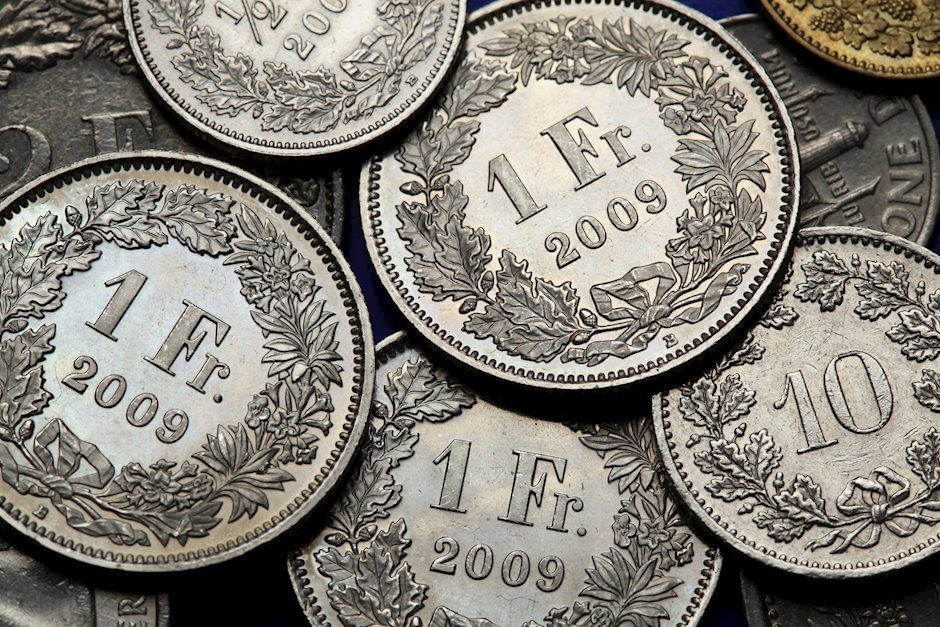USD/CHF remains firm above 0.8800, eyes on Russia-Ukraine tensions
- USD/CHF trades stronger to near 0.8835 in Tuesday’s early European session.
- Fed easing bets pared on Trump policy outlook, and strong US economic data.
- Geopolitical risks might boost the Swiss Franc and create a headwind for the pair.

The USD/CHF pair edges higher to around 0.8835 during the early European session on Tuesday, bolstered by the firmer Greenback. Switzerland’s October Trade Balance will be released later on Tuesday. Also, the Federal Reserve’s (Fed) Jeffrey Schmid is set to speak.
The strong US economic data and potential inflation from proposed tariffs have fuelled speculation that the Fed would slow the path of rate reductions, supporting the US Dollar (USD). Additionally, the cautious remarks from Fed Chair Jerome Powell contribute to the USD’s upside. Powell emphasized that the robust economic growth, solid job market, and inflation that remains above its 2% target mean the US central bank does not need to rush to lower interest rates.
Investors await comments from the Fed officials for further cues about the US interest rate trajectory. Markets have pared bets for a 25 basis points (bps) interest-rate cut at the December meeting to less than 59%, down from 62% a day earlier, according to CME FedWatch.
Nonetheless, heightened concerns about the Russia-Ukraine conflict and the ongoing geopolitical tensions in the Middle East could boost the safe-haven flows, benefiting the Swiss Franc. Joe Biden has allowed Ukraine to strike inside Russia with long-range US missiles for the first time, according to CNN News on Sunday. US sources said that Ukraine plans to conduct its first long-range attacks in the coming days, while Russia vowed to retaliate to what it called a "radical change" in the war.
Swiss Franc FAQs
The Swiss Franc (CHF) is Switzerland’s official currency. It is among the top ten most traded currencies globally, reaching volumes that well exceed the size of the Swiss economy. Its value is determined by the broad market sentiment, the country’s economic health or action taken by the Swiss National Bank (SNB), among other factors. Between 2011 and 2015, the Swiss Franc was pegged to the Euro (EUR). The peg was abruptly removed, resulting in a more than 20% increase in the Franc’s value, causing a turmoil in markets. Even though the peg isn’t in force anymore, CHF fortunes tend to be highly correlated with the Euro ones due to the high dependency of the Swiss economy on the neighboring Eurozone.
The Swiss Franc (CHF) is considered a safe-haven asset, or a currency that investors tend to buy in times of market stress. This is due to the perceived status of Switzerland in the world: a stable economy, a strong export sector, big central bank reserves or a longstanding political stance towards neutrality in global conflicts make the country’s currency a good choice for investors fleeing from risks. Turbulent times are likely to strengthen CHF value against other currencies that are seen as more risky to invest in.
The Swiss National Bank (SNB) meets four times a year – once every quarter, less than other major central banks – to decide on monetary policy. The bank aims for an annual inflation rate of less than 2%. When inflation is above target or forecasted to be above target in the foreseeable future, the bank will attempt to tame price growth by raising its policy rate. Higher interest rates are generally positive for the Swiss Franc (CHF) as they lead to higher yields, making the country a more attractive place for investors. On the contrary, lower interest rates tend to weaken CHF.
Macroeconomic data releases in Switzerland are key to assessing the state of the economy and can impact the Swiss Franc’s (CHF) valuation. The Swiss economy is broadly stable, but any sudden change in economic growth, inflation, current account or the central bank’s currency reserves have the potential to trigger moves in CHF. Generally, high economic growth, low unemployment and high confidence are good for CHF. Conversely, if economic data points to weakening momentum, CHF is likely to depreciate.
As a small and open economy, Switzerland is heavily dependent on the health of the neighboring Eurozone economies. The broader European Union is Switzerland’s main economic partner and a key political ally, so macroeconomic and monetary policy stability in the Eurozone is essential for Switzerland and, thus, for the Swiss Franc (CHF). With such dependency, some models suggest that the correlation between the fortunes of the Euro (EUR) and the CHF is more than 90%, or close to perfect.
Author

Lallalit Srijandorn
FXStreet
Lallalit Srijandorn is a Parisian at heart. She has lived in France since 2019 and now becomes a digital entrepreneur based in Paris and Bangkok.
















